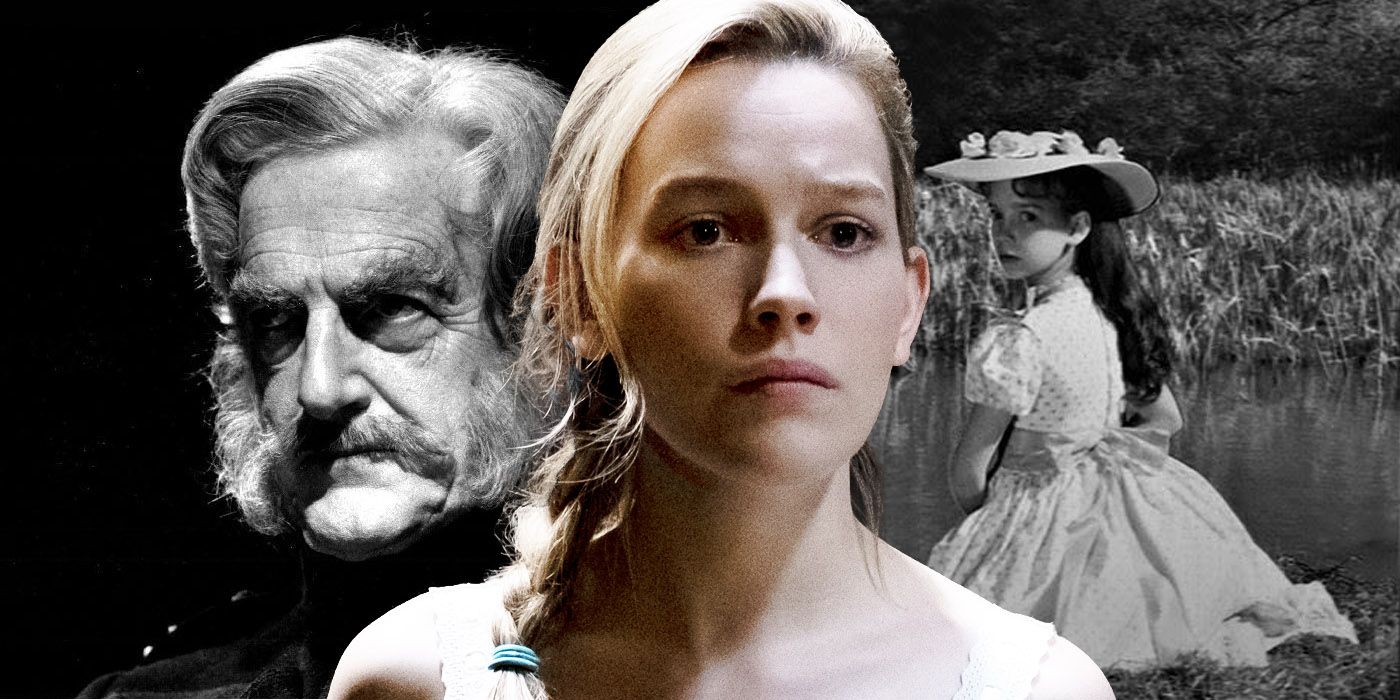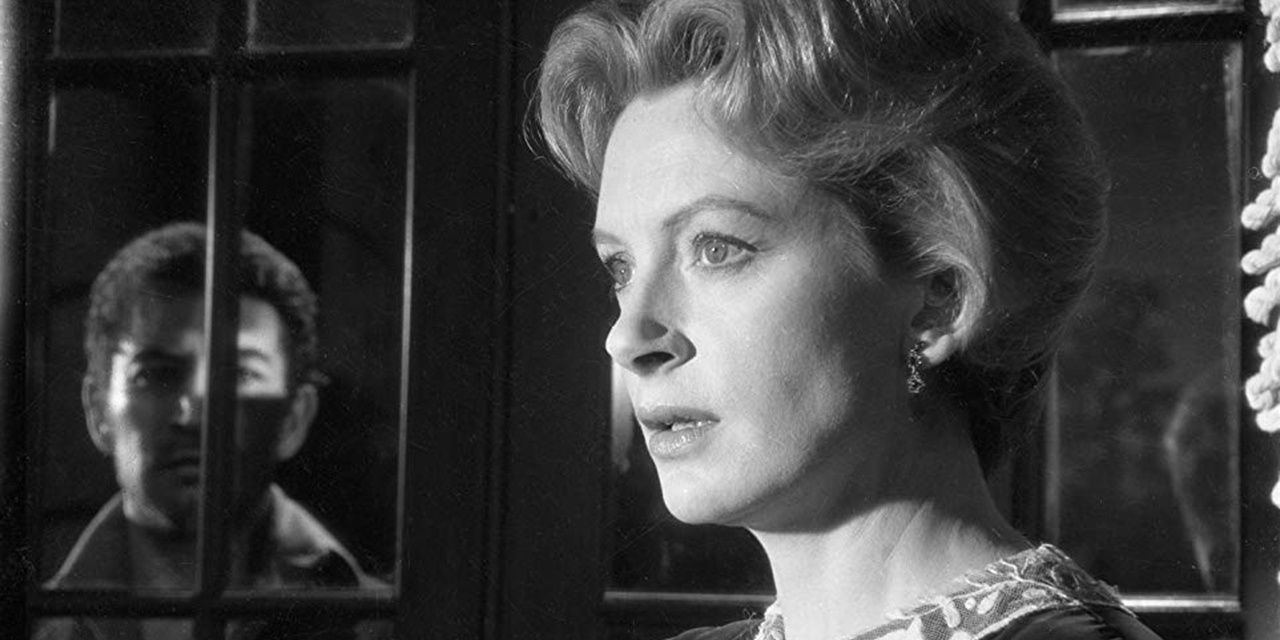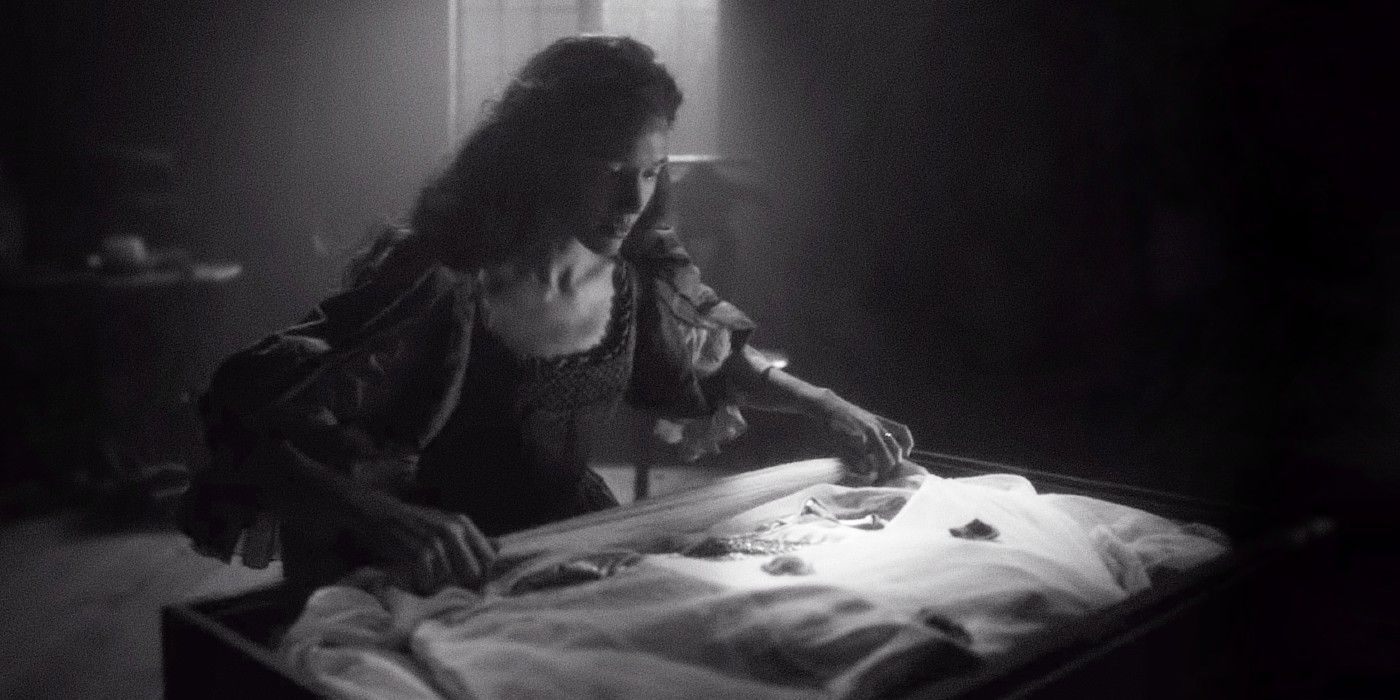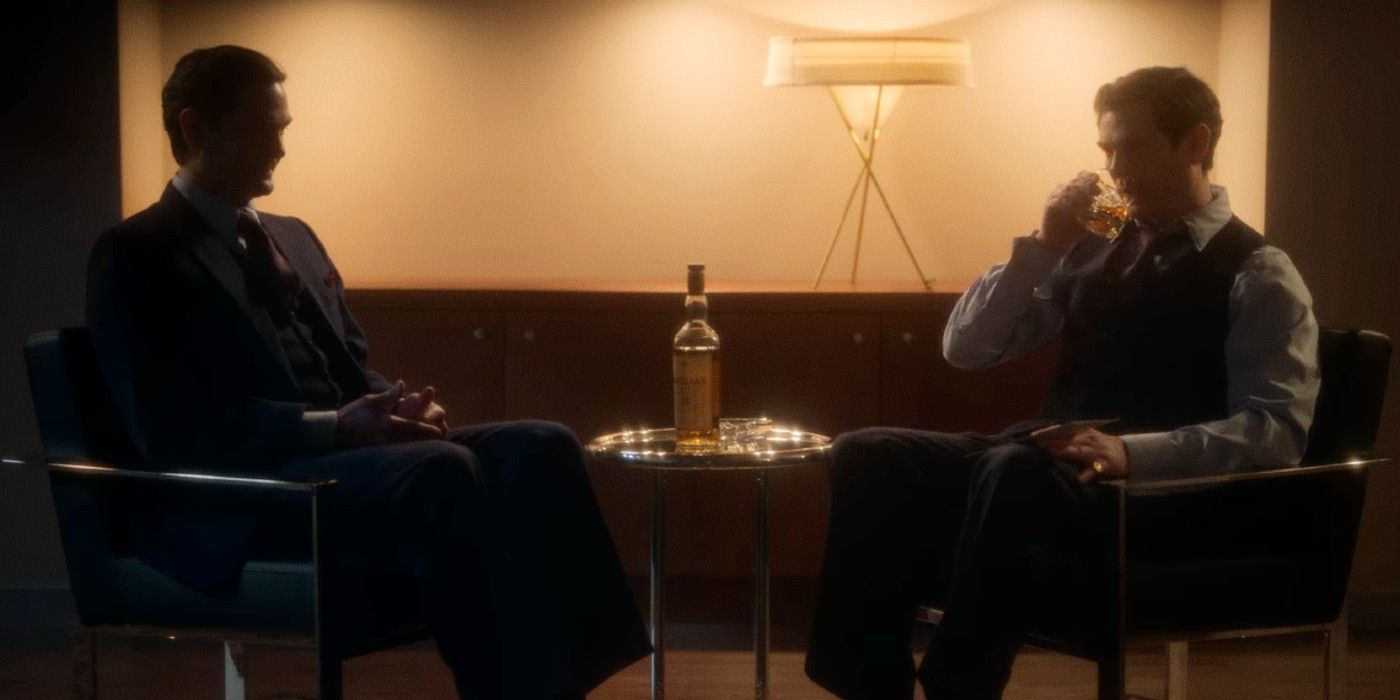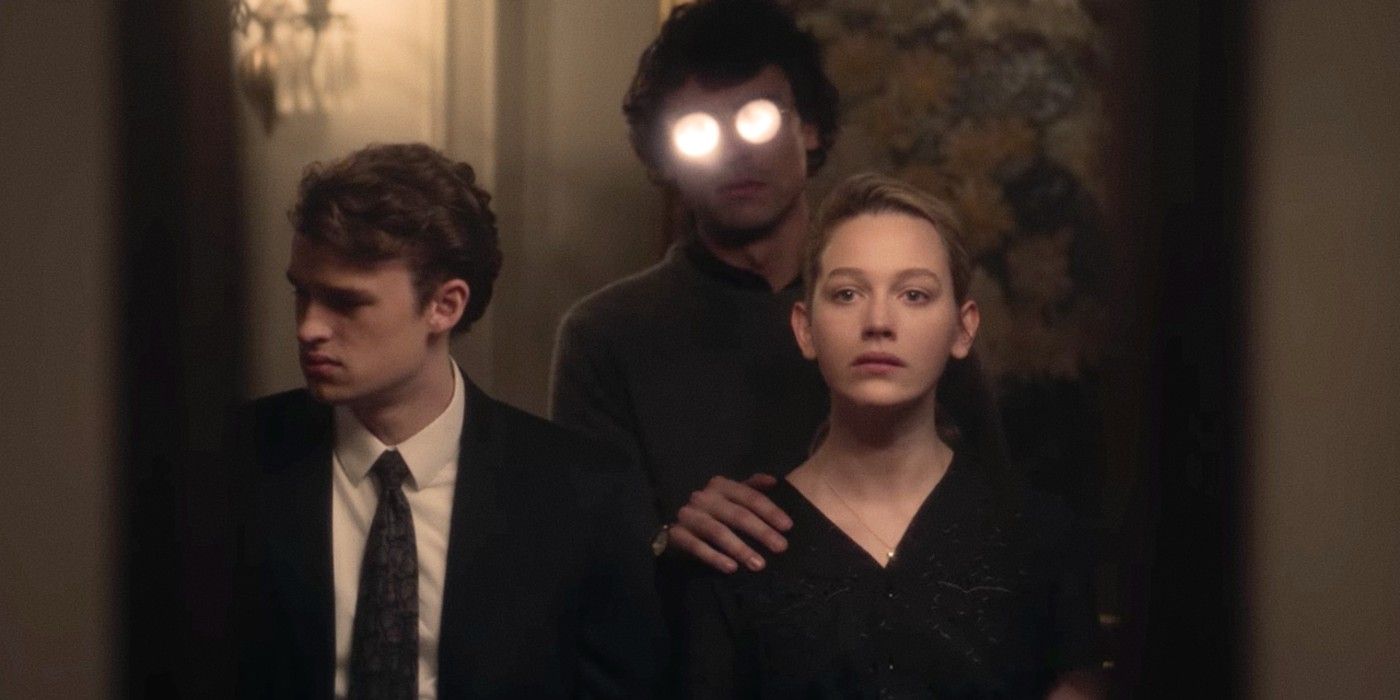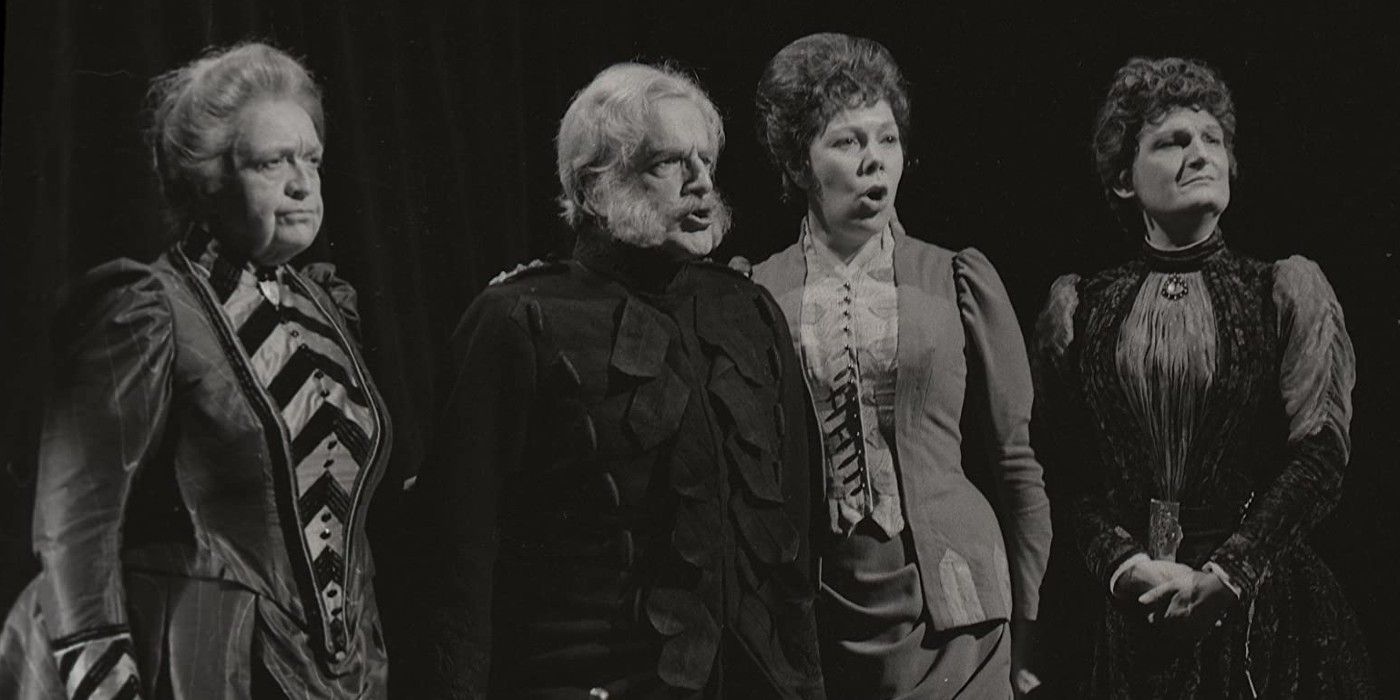Though on the surface The Haunting of Bly Manor might look like a straightforward adaptation of Henry James's most famous ghost story, The Turn of the Screw, the Netflix series is far more expansive than that. Not only does episode 8, "The Romance of Certain Old Clothes," adapt a James story of the same name, there are also elements lifted from th author's other works.
An American-born writer who eventually settled in England, Henry James was born in 1843 and passed away in 1916. His works include the novels The Portrait of a Lady and The Wings of the Dove, but it's his chilling supernatural novella The Turn of the Screw that's best known by modern audiences. Most famously adapted for the big screen as The Innocents in 1961 by director Jack Clayton, The Turn of the Screw has enjoyed many retellings thanks to its simple but highly effective premise: two innocent children being preyed upon by a pair of malevolent ghosts.
Created by Mike Flanagan as a spiritual sequel to his 2018 series The Haunting of Hill House, The Haunting of Bly Manor is packed with references to the works of Henry James - but there are a few ghost stories in particular that play a prominent role in the show.
The Turn of the Screw
First and foremost, The Haunting of Bly Manor is based on The Turn of the Screw. However, it would be more accurate to say that it's based on The Innocents, since many of the elements that made their way into the show - Miles breaking the neck of a white pigeon, Dani finding a music box and a photo of Peter Quint, and the song "O Willow Waly" - are lifted from Clayton's adaptation and are not present in the original short story. There are many other nods to the unique and chilling world that Clayton built, like the roses that Peter Quint and Miles pick, the statue garden, and the shot of Miss Jessel standing among the reeds across the lake from Flora.
The Haunting of Bly Manor's ending is also a departure from the disturbing conclusion of both the original story and the 1961 adaptation. In The Turn of the Screw, the governess succeeds in releasing both Miles and Flora from the clutches of Bly Manor's resident ghosts, but at a great cost. Flora has a fit of temper in which she screams at the governess that she hates her, and then falls very ill afterwards. Mrs. Grose takes Flora away from Bly to be with her uncle in London, and the governess is left behind with Miles. She succeeds in getting him to acknowledge the ghost of Peter Quint, which exorcises the restless spirit, but the shock of being dispossessed stops Miles's heart and the story ends with the governess clutching his dead body.
The Romance of Certain Old Clothes
Kate Siegel is one of the returning cast members from The Haunting of Hill House, but her role in The Haunting of Bly Manor was kept a carefully-guarded secret. Episode 8, "The Romance of Certain Old Clothes," reveals that she's actually playing Viola Lloyd, one of two sisters who once lived at Bly Manor (Katie Parker, who plays Perdita, also appeared in Hill House as the mad ghost of Poppy Hill). Interestingly, Henry James appears to have edited The Romance of Certain Old Clothes after the fact to create a connection to one of his other ghost stories. In addition to changing the name of the eldest daughter from Viola to Rosalind when the story was republished, he also changed the surname of the family from Willoughby to Wingrave, the name of the family in Owen Wingrave.
The Haunting of Bly Manor keeps the original names of Viola and Willoughby, but also makes a few changes from the original story. In James's version the sisters' mother is still alive and they also have an older brother, so the need to secure their inheritance is not a factor in the marriage to Arthur Lloyd. Arthur also marries Perdita first instead of Viola, after several months of awkwardly trying to flirt with both girls in front of their mother. Perdita dies not from tuberculosis (like Viola does in the show), but after a difficult childbirth. Viola and Arthur marry some time later and, as in The Haunting of Bly Manor, Arthur's bad business ventures leave them poor, causing his second wife to start yearning for the chest of fine clothes that his first wife made him swear to save for their daughter.
Viola's refusal to submit to death, her final resting place in the lake, and her transformation of the house into a gravity well for other ghosts are not elements in the original Henry James story. The Romance of Certain Old Clothes ends after the second wife goes to attic to unlock the chest full of clothes. Arthur finds her still there the next morning: "Her lips were parted in entreaty, in dismay, in agony; and on her blanched brow and cheeks there glowed the marks of ten hideous wounds from two vengeful ghostly hands."
The Jolly Corner
The Haunting of Bly Manor episode 6, "The Jolly Corner," is named after a Henry James story that's about a rather unusual kind of ghost. In the story a man called Spencer Brydon returns to the home he grew up in and begins to dwell on what kind of life he'd lived if he had made different choices. He becomes convinced that somewhere in the house, just out of sight, this other possible version of himself is living, and begins obsessively walking through the rooms in search of his doppelganger. Unfortunately for Spencer Brydon, he eventually finds what he's looking for:
"Rigid and conscious, spectral yet human, a man of his own substance and stature waited there to measure himself with his power to dismay. This only could it be - this only till he recognised, with his advance, that what made the face dim was the pair of raised hands that covered it... The hands, as he looked, began to move, to open; then, as if deciding in a flash, dropped from the face and left it uncovered and presented. Horror, with the sight, had leaped into Brydon’s throat, gasping there in a sound he couldn’t utter; for the bared identity was too hideous as his, and his glare was the passion of his protest."
Lord Henry Wingrave's doppelganger in The Haunting of Bly Manor is rather different. Instead of being a vision of a life he might have lived, the grinning ghost is a manifestation of his own guilty conscience. It appeared for the first time after Henry's brother banished him from the family, cursed him to live alone with no one but himself for company, and subsequently died along with Charlotte Wingrave in India. Unlike Spencer, who only confronted his double for a few moments before fainting, Henry spends every night in his office getting drunk and being tormented by the ghost he can't get rid of.
Sir Edmund Orme
Lord Henry isn't the only character being haunted by a guilty conscience in The Haunting of Bly Manor. Dani cannot look in a mirror without seeing the spectre of her dead fiancé, Edmund, who was hit by a truck and killed just moments after she broke off their engagement. This is a loose adaptation of Henry James's story Sir Edmund Orme, in which a young man starts to fall in love with a beautiful young woman, but notices a strange gentleman who always seems to be hanging around her. The young woman's mother, Mrs. Marden, is the only other person who can see this gentleman, and she pleads with the young suitor not to tell her daughter about the sinister presence. The man, she tells him, is called Sir Edmund Orme, and he has been haunting her for years:
"He killed himself. I broke his heart - he thought me awfully bad. We were to have been married, but I broke it off - just at the last. I saw some one I liked better; I had no reason but that. It wasn't for interest, or money, or position, or anything of that sort. All those things were his. It was simply that I fell in love with Captain Marden. When I saw him I felt that I couldn't marry any one else. I wasn't in love with Edmund Orme - my mother, my elder sister had brought it about. But he did love me. I told him I didn't care - that I couldn't, that I wouldn't. I threw him over, and he took something, some abominable drug or draught that proved fatal. It was dreadful, it was horrible, he was found that way - he died in agony."
After her husband died, Mrs. Marden began to see Sir Edmund Orme watching her daughter. The sight of the ghost causes her to start and panic, and she tells people that she's "liable to palpitations" to cover up the real reason behind her strange episodes. The nature of her torment is very similar to Dani's, whose sudden glimpses of Edmund can trigger panic attacks that are impossible to explain to those around her.
Owen Wingrave
The Haunting of Bly Manor doesn't so much adapt Owen Wingrave as it does weave it into the background. The original Henry James story is about a tutor who prepares boys for an army career, and is surprised when Owen Wingrave - a very promising young man from a family with a long and proud history of serving in the military - declares that he will not join the army because he disagrees with the violence of war on principle. Owen is the heir to the family name and fortune, and his relatives are outraged by his decision. They invite the tutor for a dinner at the Wingrave family manor, where they hope to gang up on young Owen and change his mind.
While there, the tutor learns that the house has a bedroom where no one sleeps. He is told a story about a former member of the Wingrave family who hit his son in anger and accidentally killed the boy. The father was later found dead in the same room where the first death had occurred, believed to have been frightened to death by the ghost of his dead son. The story ends with Owen Wingrave himself, having been dared to spend the night in the forbidden bedroom, found dead in the same way his ancestor once was.
The Haunting of Bly Manor draws inspiration from Owen Wingrave in a few ways. There's the forbidden wing of the house, where the Wingrave parents used to sleep, which is visited at night by a ghost. After Flora is frightened by the faceless ghost of a little boy, Lord Henry tells her that he had an imaginary friend when he was a boy - a soldier. The ghost of the soldier is hidden in the background of certain scenes, revealing that the Wingraves of Bly Manor have their own military history, just like the family in the story.

